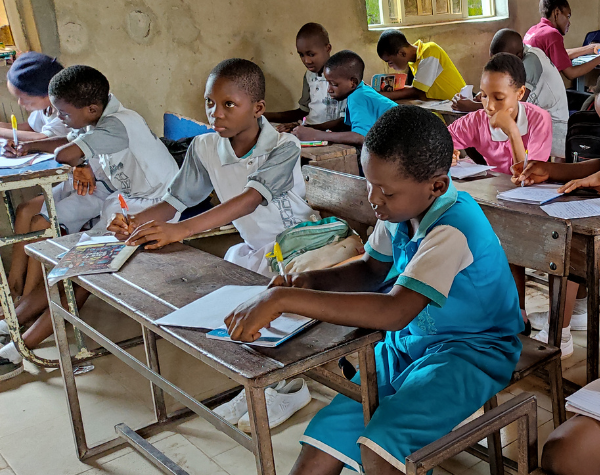
Deadline: 24-Oct-22
UBS Optimus Foundation is therefore working with Convergence to launch this Tertiary Education Financing Prize to identify successful student financing solutions that can help more young people enter tertiary education, and thereby drive improved education outcomes as well as increased youth employment.
Education has long been recognized as a driver of multiple development benefits including reduced poverty, improved health, increased gender equality, and greater peace and stability. Tertiary education, including higher education and vocational training, in particular, delivers societal as well as individual benefits, such as inclusive growth, increased employment, higher tax revenues and greater resilience to economic shocks. As access to primary and secondary education increases, and youth populations expand, low- and lower-middle-income countries face intensified demand for high-quality, cost-effective tertiary education that meets labour market needs and boosts employment of young people.
Access to tertiary education, however, remains largely out of reach for low-income students in low- and lower-middle-income countries. Government funding and scholarships are limited, and private financing options are scarce.
Funding Information
This initiative will identify, evaluate, and select the best student financing solutions, and award up to four prizes of at least USD 250,000 each through a competitive call for applications.
Eligibility Criteria
Countries Targeted
- Solutions can target any country classified as low-income,
- Lower-middle income, or
- Upper-middle income outside of Europe according to the World Bank’s country classification.
- The applicant does not need to be domiciled in any of the targeted countries, but the end beneficiaries must live in the targeted countries.
Tertiary education: Solutions that fulfil the UNESCO definition of tertiary education which is the extension of secondary education in specialized fields of education, including what is commonly understood as academic education (colleges, universities), but also advanced vocational or professional education.
Types of solutions: Solutions that provide inclusive, fair, and affordable student financing for access to tertiary education:
- Solutions must be financial products focused on enabling access to tertiary education for low-income and underserved students, for instance loans, income share agreements, or any other financing instruments
- Solutions must have been implemented already and still in the early stages of adoption, with the potential to scale in the future
- Solutions must target
- Better access to education as well as
- Better education outcomes and/or
- Better employment outcomes
- Solutions must benefit directly and predominantly young people up to the age of 25 years
- The solution must be based on a business model that is investible or has the potential to become investible
- Solutions must be financially self-sustaining, on the path to becoming financially self-sustaining, or partially financially self-sustaining (meaning intentionally using a mix of investment and grant funding, but with the ability to return investment funding)
Ineligible solutions
What they are not looking for:
- Solutions that are solely grant-funded and do not demonstrate potential to be financially self-sustaining
- Scholarship programs
- Study abroad programs at European or North American tertiary education
- institutions, or programs where a small number of top-performing students are selected to study at tertiary education institutions outside of their country of origin
- Market research on or the development of a new product that would fit what is described under “Types of solutions” above, but that does not yet exist
- High-level market research
- Acceleration, incubation platforms
For more information, visit https://www.convergence.finance/design-funding/open-window/education-financing-prize
